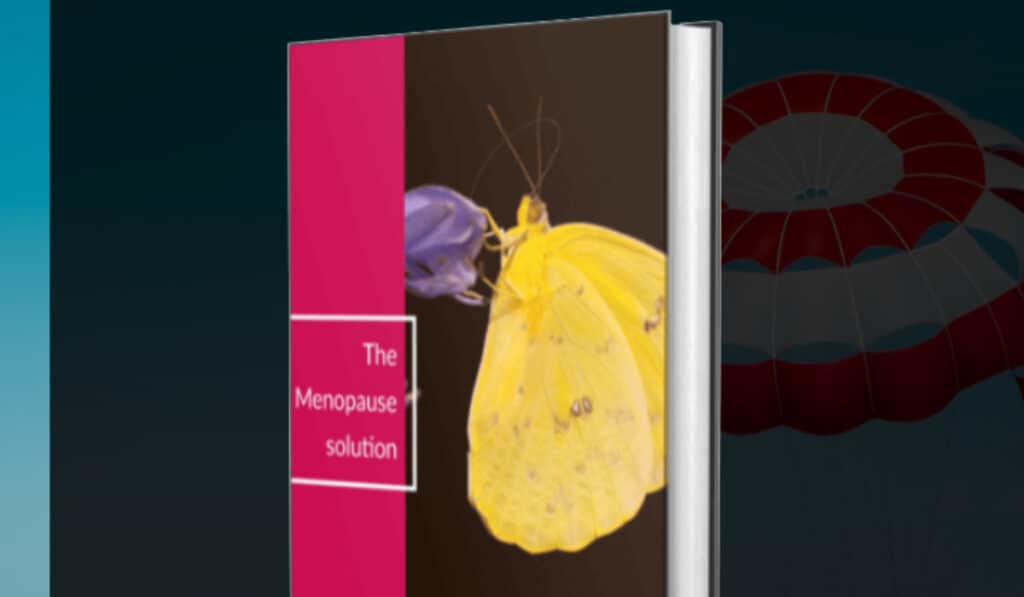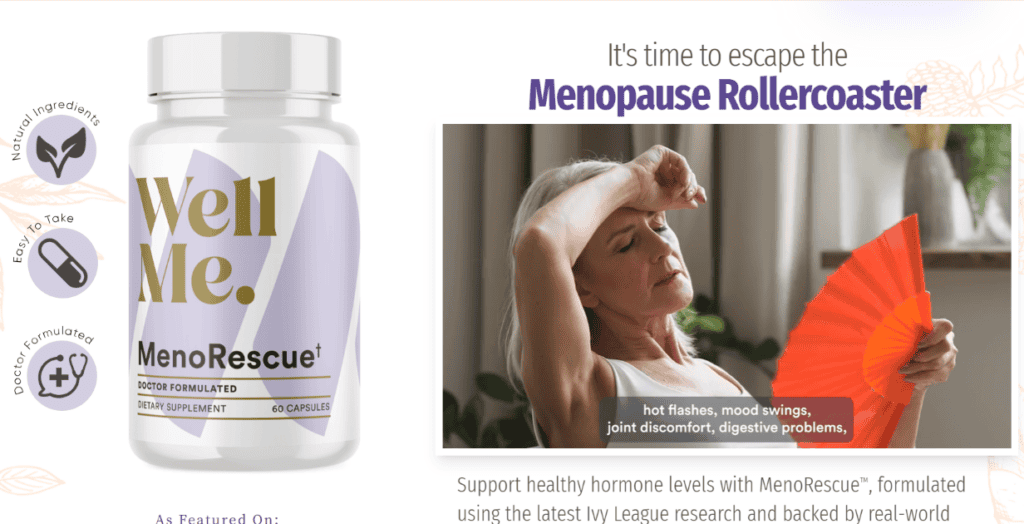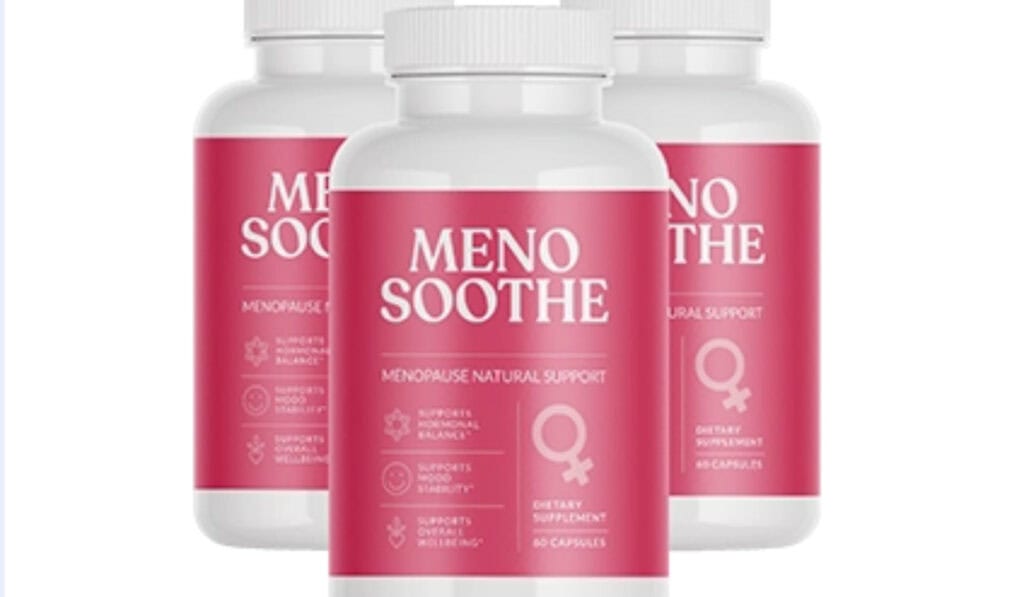Guide to the Stages and Symptoms and More
Menopause marks a significant phase in a woman’s life, transitioning from years of fertility to a new stage of independence from reproductive responsibilities. This natural process brings about changes that affect not just the physical body but emotional well-being too. Understanding menopause, its stages, and symptoms is crucial for navigating this transition with confidence and grace.
Embarking on this journey, you’ll uncover the biological shifts that signal the end of menstrual cycles, the emotional impacts that accompany these changes, and the importance of managing symptoms for a healthy post-reproductive life. With insight into the stages of menopause—from perimenopause to postmenopause—you’ll gain valuable knowledge to tackle this natural transition head-on, armed with strategies for symptom management and long-term health.
Introduction to Menopause
Menopause isn’t just a single event but a gradual journey that marks the end of a woman’s reproductive years. It’s a natural phase, experienced by every woman, typically in her 40s or 50s, signaling that her body is undergoing significant hormonal changes.
Defining Menopause and Its Importance
At its core, menopause is the cessation of menstruation, a clear sign that the ovaries have stopped releasing eggs. This milestone is vital for understanding the shifts in a woman’s life, spotlighting the transition into an era where reproductive hormones take a backseat.
The Biological and Emotional Impact of Menopause
Menopause weaves together a complex tapestry of biological and emotional changes. The fluctuating hormone levels can lead to symptoms like hot flashes and sleep problems, while the emotional toll may manifest as difficulty concentrating. This period demands a compassionate understanding and proactive management to ensure quality of life.
The Average Age and Duration of Menopause
In the United States, the average age of menopause is around 51, though it typically begins in your mid-40s. This period varies greatly among individuals, reflecting the body’s unique timing in concluding the reproductive years.
Factors Influencing the Timing of Menopause
Several factors can influence when menopause starts. Genetics play a pivotal role, but lifestyle choices and certain medical treatments or surgeries can also impact the timing. Understanding these factors can help you better prepare for the transition ahead.
Exploring the Stages of Menopause
Menopause unfolds in stages, each characterized by different symptoms and hormonal changes. Recognizing these stages helps you anticipate changes and manage symptoms effectively.
Perimenopause: The Prelude
Perimenopause is the lead-up to menopause, marked by irregular periods. This stage signals that the body is beginning its transition, preparing for the end of menstrual cycles.
Identifying Early Signs of Perimenopause
The onset of perimenopause brings various symptoms, including irregular periods, hot flashes, and mood swings. These early signs are the body’s way of signaling the beginning of the menopause transition, a crucial time for awareness and adjustment.
Menopause: The Transition
Menopause itself is defined by a year without menstruation, a clear indicator that the ovaries have significantly reduced their hormone production.
Understanding Hormonal Changes During Menopause
During menopause, the ovaries gradually stop releasing eggs, leading to decreased levels of hormones estrogen and progesterone. This reduction in reproductive hormones can also influence cholesterol levels, affecting overall health.
Postmenopause: Life After the Transition
After menopause, women enter postmenopause, a stage that continues for the rest of their lives. This period necessitates a focus on maintaining a healthy diet, body weight, and bone density to manage symptoms and prevent health risks.
Long-Term Health Considerations in Postmenopause
Postmenopausal women face changes in hormone and cholesterol levels that can impact long-term health. It’s vital to monitor these changes and adopt a healthy lifestyle to mitigate risks and enjoy a fulfilling postmenopausal life.
Symptoms and Triggers of Menopause
Understanding the common symptoms and triggers of menopause equips you to manage this transition more effectively, ensuring a smoother journey through each stage.
Common Symptoms Across the Menopausal Stages
Menopause brings a variety of symptoms, from hot flashes to mood swings. Recognizing these signs across the menopausal stages helps in seeking timely support and treatment options.
Hot Flashes and Night Sweats: Triggers and Management
Hot flashes and night sweats can really make you uncomfortable. They happen when your body feels suddenly warm, and you start sweating a lot, especially at night. To manage these, try to keep your room cool and wear light clothes. Avoiding spicy foods and caffeine might also help, as these can trigger hot flashes. If they’re really bothering you, talking to a doctor can be a good idea. They can suggest other ways to help you feel better.
The Unique Challenges of Weight Gain During Menopause
During menopause, you might notice that keeping your weight stable is harder than before. This is a common challenge many face.
Strategies to Combat Weight Gain
To manage weight gain during menopause, focus on eating healthy foods and staying active. Eating lots of fruits, vegetables, and whole grains can help. Also, try to get some exercise every day, even if it’s just a walk. Remember, making small changes can lead to big results over time. If you’re struggling, a nutritionist might offer more personalized advice.
Diagnosing Menopause
Figuring out if you’re going through menopause involves talking to your doctor about your symptoms and possibly some tests.
When and How Menopause is Diagnosed
A doctor can tell if you’ve reached menopause if you haven’t had your period for 12 straight months. They’ll ask about your symptoms and might do some tests.
The Role of Your Healthcare Provider in Diagnosis
Your doctor plays a key role in diagnosing menopause. They’ll talk with you about your symptoms, like hot flashes or changes in your period. They can also check for other causes of your symptoms to make sure there’s no underlying health issue. This conversation is a chance for you to share what you’re experiencing and get advice on how to manage symptoms.
Tests and Tools for Confirming Menopause
Doctors sometimes use tests to help figure out if you’re in menopause.
Evaluating Hormone Levels and Other Diagnostic Tests
To confirm menopause, doctors might check your hormone levels with blood tests. These tests look at hormones like estrogen and progesterone. Changes in these hormone levels can show if you’re in the perimenopause stage or have already reached menopause. If your periods are irregular, these tests can help understand what’s happening. Sometimes, doctors also check for thyroid problems because they can cause similar symptoms.
Treatment Options and Management
There are many ways to help manage menopause symptoms, depending on what you’re experiencing and your health history.
Hormone Therapy: Pros and Cons
Hormone therapy can help with symptoms like hot flashes, but it’s not right for everyone. Your doctor will consider your health history, including risks like breast cancer or heart disease, before suggesting it.
Prescription Medications Beyond Hormone Therapy
Besides hormone therapy, there are other medications that can help with menopause symptoms. Some medicines can help with mood changes, like depression and anxiety. Others might help with sleep problems or bone health. Your doctor can talk with you about what might work best for you.
Lifestyle Adjustments for Symptom Management
Making some changes in your daily life can help you feel better during menopause.
Dietary Changes, Exercise, and Stress Management
Eating healthy foods and staying active are key. Try to include lots of fruits, vegetables, and whole grains in your diet. Regular exercise can also help with symptoms like mood swings and sleep issues. Finding ways to relax, like through yoga or meditation, can also help manage stress. These changes can make a big difference in how you feel.
Beyond Traditional Treatments
There are also non-traditional ways to manage menopause symptoms that might work for you.
Non-Hormonal Therapies for Menopause Relief
Some people find relief from menopause symptoms with non-hormonal options. These can include herbal supplements or acupuncture. It’s important to talk to your doctor before trying these, as they can affect other treatments or health conditions.
Herbal Supplements and Their Efficacy
Many women turn to herbal supplements as a natural way to ease menopause symptoms. Among the most popular are black cohosh, which can help with hot flashes and mood swings, and red clover, known for its potential to improve heart health. Importantly, integrating calcium and vitamin D supplements into your routine can support bone health, addressing concerns about osteoporosis. However, it’s crucial to approach these remedies with caution, as their effectiveness can vary widely, and they may interact with other medications. Always consult with a healthcare provider before starting any new supplement.
Alternative Approaches to Managing Menopause Symptoms
Exploring alternative treatment options and making lifestyle adjustments can significantly improve your quality of life during menopause. Techniques such as yoga and acupuncture have been reported to alleviate some symptoms, offering a holistic approach to this natural transition.
The Benefits of Support Groups and Communities
Joining support groups and communities can be incredibly beneficial. Sharing experiences and advice with others who understand what you’re going through can provide emotional relief and practical tips for managing symptoms. Whether it’s online forums or local meetups, these communities offer a sense of belonging and can help you navigate menopause with confidence.
Navigating Health Post-Menopause
After menopause, your focus may shift towards maintaining your overall health and preventing potential postmenopausal conditions. Adopting a healthy lifestyle that includes regular physical activity, a balanced diet, and routine health screenings becomes even more crucial. Staying informed about the changes your body is going through will help you address any health concerns promptly and continue to live a vibrant life.
Postmenopausal Health Risks and Prevention
Understanding natural aging and its impact is vital for preventing postmenopausal health risks. Regular check-ups and being proactive about your health can make a significant difference in your well-being during this stage.
Osteoporosis and Cardiovascular Diseases
Osteoporosis and cardiovascular diseases are significant concerns for postmenopausal women. The decrease in estrogen levels can lead to a reduction in bone density, increasing the risk of osteoporosis. Similarly, changes in blood pressure and cholesterol levels can heighten the risk of heart-related conditions. Engaging in weight-bearing exercises, maintaining a diet rich in calcium and vitamin D, and monitoring your heart health are essential strategies for prevention.
The Importance of Regular Health Screenings
After you enter postmenopause, keeping up with regular health screenings becomes crucial. These check-ups can catch early signs of conditions that are more common as you age, such as osteoporosis and heart disease. Screenings like mammograms, bone density tests, and blood pressure checks help monitor your physical well-being. Remember, early detection is key to managing your health and preventing more serious problems.
Common Questions and Myths
There are many myths about menopause, but one fact stands: every woman’s experience is unique. Some believe that menopause instantly means the end of fertility, yet it’s possible, though less likely, to become pregnant until you’ve gone a full year without a period. Another common myth is that menopause only brings negative changes. While it’s true you might face challenges like difficulty concentrating, many find relief in no longer worrying about periods or pregnancy. Understanding these facts helps demystify menopause and prepares you for this natural transition.
Can You Get Pregnant During Menopause?
Yes, you can still get pregnant during the early stages of menopause. Until you’ve gone a full 12 months without a period, indicating you’ve entered postmenopause, ovulation can still occur sporadically. This means there’s a chance, however small, of conceiving. If avoiding pregnancy is your goal, continue using birth control until reaching postmenopause. It’s a common misconception that menopause equals immediate infertility, but your body may surprise you.
Addressing Emotional Changes and Mental Health
Menopause can stir up a mix of emotions. If you’re feeling down, reach out to healthcare professionals who understand what you’re going through.
The Impact of Menopause on Sleep and Sex Life
Menopause often brings changes to your sleep and sex life. Hot flashes can disrupt a good night’s sleep, making you feel tired during the day. You might also notice changes in your libido or comfort during sex due to vaginal dryness. The good news is, there are ways to manage these issues. Simple strategies like using a fan at night or lubricants can make a big difference. Talking openly with your partner and healthcare provider can also provide relief and solutions.
Support and Resources for Menopause
Remember, you’re not alone. Many resources are available to help you through this time.
Finding the Right Support Network
Connecting with others who are going through menopause can be incredibly helpful.
Professional and Community Resources Available
There are numerous resources available for those navigating menopause. Professional guidance from healthcare providers can offer personalized advice and treatment options. Additionally, community support groups, both in-person and online, provide a space to share experiences and coping strategies. Organizations like the North American Menopause Society offer a wealth of information, from managing symptoms to understanding long-term health implications. Don’t hesitate to seek out these resources to make your menopausal journey smoother.
When to Consult a Healthcare Provider
If symptoms disrupt your life, it’s time to seek help.
Questions to Ask Your Healthcare Provider About Menopause
When you visit your healthcare provider, come prepared with questions to get the most out of your appointment. Ask about the best ways to manage your symptoms, the pros and cons of hormone therapy, and how to protect your long-term health, including heart health and bone density. Inquire about lifestyle changes that might ease your transition and any tests you should consider. Understanding your health during menopause empowers you to make informed decisions.
Closing Thoughts: Embracing The Menopausal Journey
Menopause is a significant milestone, not an endpoint. With the right knowledge and support, you can navigate this phase with confidence and grace. Remember, experiencing menopause is a universal part of aging for women, and it brings its own set of challenges and opportunities. Embrace this time as a chance for growth and new beginnings. Your attitude and approach can transform your menopausal journey into a positive and empowering experience.
Menopause: A Natural Phase of Life
Menopause is a natural, inevitable phase of life.
The Empowerment Through Knowledge and Support
Understanding menopause and knowing where to find support can make a big difference in how you experience this transition. Education on the stages, symptoms, and management options empowers you to take control of your journey. Support from healthcare professionals, along with the solidarity found in communities and societies dedicated to menopause, can provide comfort and guidance. By embracing this phase with knowledge and support, you can navigate menopause with confidence and positivity.




